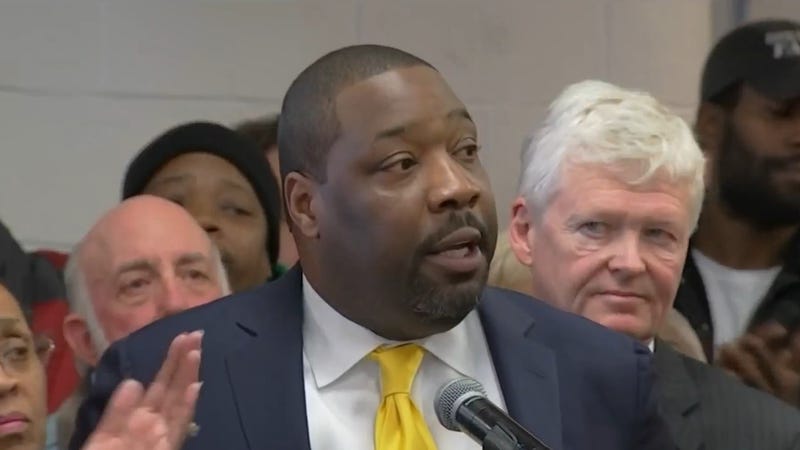
PHILADELPHIA (KYW Newsradio) — A federal jury heard closing arguments Wednesday in the retrial of Philadelphia City Councilmember Kenyatta Johnson and three others on bribery charges. The jury was expected to get the case Thursday.
Attorneys for all four defendants made essentially the same argument, that the government's case against their clients doesn't make sense.
That case says that Rahim Islam and Shaheid Dawan, the top two executives of Universal Companies which runs charter schools and real estate initiatives, bribed Johnson by entering into a contract with his wife Dawn Chavous' consulting firm, paying just under $67,000 for some 40 hours of work she performed from May 2013 to September 2014.
A couple of months after the contract ended, Johnson introduced a zoning change that Universal needed for the Royal Theater, a South Street landmark it owned that had been vacant for years.
Prosecutors in their case made some slight tweaks, anticipating the defense arguments, and adding more visual aids. They argued Universal executives were counting on money from selling the Royal Theater to stay afloat after squandering company money, and Johnson and Chavous needed the money to shore up their own tenuous finances.
Among the holes the attorneys poked in the theory: That Chavous is a highly-regarded expert in regulations and funding for charter schools and has extensive connections in that sector, so there was good reason for Universal to engage her; that Chavous did extensive work for the contract documented in emails and witness testimony; and that Johnson was a longtime friend of Universal and the Royal Theater went through a community review process, gaining wide approval from neighbors, so Johnson surely would have proposed the zoning change anyway.
"Why work so hard on a contract if it was a bribe?" Johnson's attorney asked. "Why bribe someone to do something you expected him to do anyway? And why end the contract before Johnson had acted?"
The prosecutor's rebuttal was that all those inconsistencies were the coverup.
"This was the defense from the beginning," he said, "in case they ever got caught."
The six-year investigation into Johnson, Chavous, Islam and Dawan included 150 interviews. A grand jury issued an indictment in January 2020, but the pandemic led to a delay for the first trial until this past March.
That trial took about four weeks before it went to the jury, with prosecutors calling 20 witnesses and submitting thousands of evidentiary documents. The jury deliberated for nearly a week before it failed to reach a unanimous verdict and a mistrial was declared.
Defense attorneys argued that from all the witnesses, interviews and evidence, not one piece of direct evidence was found showing that a 16-month contract between Universal and Chavous was actually a bribe to Johnson to take official action on Universal's behalf.
One defense attorney described the case as a theory in search of evidence.
Prosecutors conceded their case is circumstantial but asked the jury to bring the glue that would hold it together. Johnson's lawyer told them it was not their job to bring glue but to add up the evidence, to see if the defendants' presumption of innocence had been overcome beyond a reasonable doubt.



